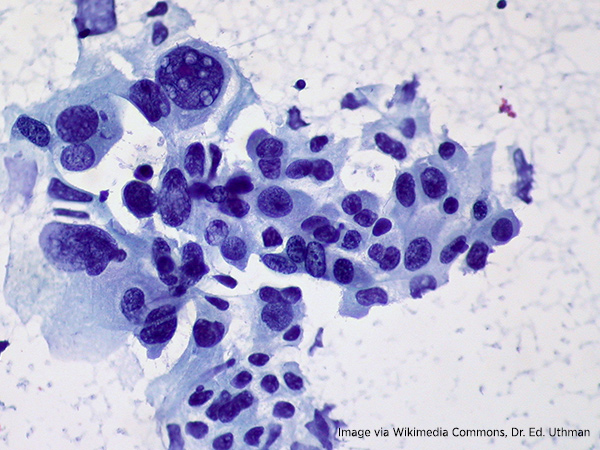Testing for Lung Cancer Mutations
The FDA approved the first liquid biopsy companion diagnostic that uses next-generation sequencing to test for EGFR gene mutations in certain types of lung cancer.

The U.S. Food and Drug Administration (FDA) has approved Guardant360 CDx as the first companion diagnostic test that combines two advances in tumor DNA sequencing into one test to guide treatment decisions for certain patients with metastatic non-small cell lung cancer.
The diagnostic test is designed to identify patients with specific mutations in the epidermal growth factor receptor (EGFR) gene who may benefit from treatment with a molecularly targeted therapeutic. Liquid biopsies are a less invasive way to obtain samples because they come from a blood test rather than a tissue biopsy.
Guardant360 CDx uses next-generation sequencing technology that can detect mutations in 55 tumor genes simultaneously. Even though this advanced method of tumor profiling gives clinicians a full assessment of tumor composition by detecting multiple biomarkers in one sweep, the approval only applies to patients who may benefit from treatment with osimertinib (Tagrisso)—a therapeutic that targets a protein abnormality caused by EFGR mutations. The FDA recommends that if the new blood test fails to detect the specific EFGR genetic mutations it is designed to find, then a tumor biopsy should be performed.
Lung cancer remains the leading cause of cancer death in the United States and worldwide. Non-small cell lung cancer (NSCLC) is the most common form of the disease, accounting for approximately 85 percent of all cases in the U.S. According to federal statistics, in 2020, more than 228,000 people will be diagnosed with lung cancer and over 135,000 people are expected to die of the disease in the United States.
The FDA granted a Breakthrough Device designation for Guardant360 CDx on August 7, 2020. Breakthrough Device designation means patients with life-threatening or irreversibly debilitating diseases have access to medical devices at the premarket stage with the goal of having manufacturers quickly resolve or address issues so the application for full approval can occur in a timely manner.
